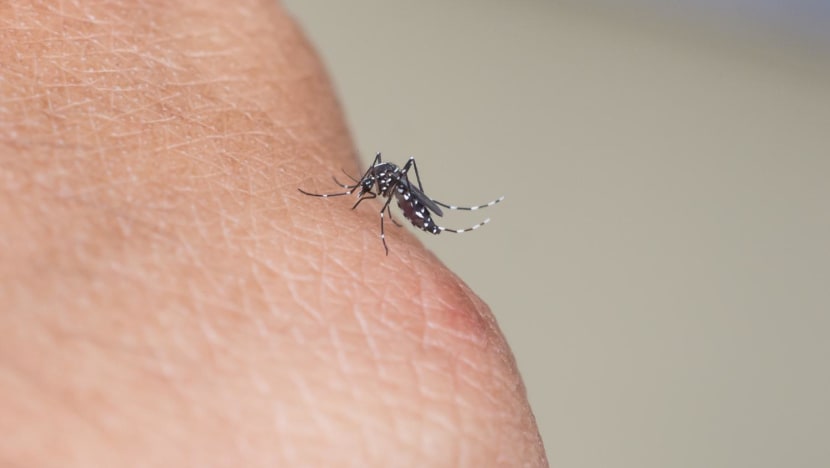The virus is primarily transmitted by the Aedes mosquito, similar to dengue.

SINGAPORE— Singapore has reported its first Zika case since March 2020.
The case was reported during the week of Aug 21 to Aug 27 this year, according to the Ministry of Health’s (MOH) latest weekly infectious diseases bulletin.
CNA has contacted the Health Ministry for more information.
National Environment Agency (NEA) data showed that 666 dengue cases were also reported during the same week.
Zika virus infection is primarily transmitted by the Aedes mosquito, similar to dengue. There were 194 active dengue clusters in Singapore as of Aug 29 this year.
The NEA website also showed that 75 dengue clusters are currently identified as “red”, indicating that each cluster has 10 or more cases.
There is presently no active Zika cluster as of Friday.
MOSQUITO POPULATION
The Aedes aegypti mosquito population, which is the primary dengue vector, remained high in Singapore in July this year.
“The high Aedes aegypti mosquito population, together with circulation of the previously uncommon DENV-3, will likely lead to dengue case numbers remaining high in the coming months,” said the agency.
According to the MOH website, only about one in five Zika infections are symptomatic.
“Zika is generally a mild and self-limiting illness. Although rare, serious neurological complications and foetal abnormalities have been associated with Zika virus infection,” said the ministry, adding that there is no vaccine or specific anti-viral drugs for the virus.
Those who develop symptoms may experience fever, rash, joint pain, muscle pain, headache as well as conjunctivitis or red eyes.
Symptoms usually appear within three to 12 days of being bitten by an infected Aedes mosquito and can last between four and seven days.
The World Health Organization (WHO) declared the Zika outbreak a public health emergency in February 2016. The emergency declaration was lifted in November the same year.
Singapore reported its very first imported case of Zika in May 2016, and the first locally transmitted case came a few months later in August. By the end of that year, more than 450 people had been infected.
In 2017, there were 67 confirmed cases of Zika, of which three were imported. One case was reported in 2018 while there were 12 cases in 2019, according to MOH data.
The virus has been associated with neurological diseases such as microcephaly, which causes babies to be born with a smaller head due to abnormalities in the development of the brain.
Although the Zika virus is primarily transmitted by the Aedes mosquito, the WHO said it can also be transmitted from mother to foetus during pregnancy, through sexual contact, transfusion of blood and blood products, and organ transplantation.
